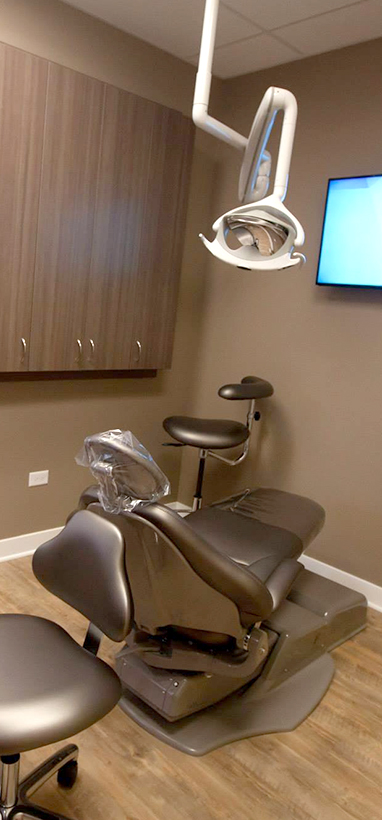1516 Legacy Cir, Naperville, IL 60563
Living Well Dental Group’s Guide to Choosing the Right Interdental Tool in Naperville

It is just as important to clean between your teeth as it is to brush. Plaque and food can be trapped where toothbrush bristles cannot reach. If left undisturbed, this accumulation will lead to gum inflammation, decay, and eventual tooth loss. The right interdental cleaning tool can make a significant difference in maintaining your oral health.
Why Interdental Cleaning Is Necessary
Regardless of how good you are at brushing, there are some areas that you just can’t reach. The American Dental Association (ADA) states that interdental cleaning can remove up to 40% more plaque than brushing alone. By cleaning these deep, hidden areas daily, you can reduce your risk of cavities, gum disease, and bad breath.
Types of Interdental Tools
There is no one-size-fits-all. The best one depends on your tooth shape, gum sensitivity, and comfort. Below are the main options your Naperville dentist may recommend:
- Dental Floss – Available in waxed, unwaxed, and tape varieties, floss is ideal for teeth that are close together. It is effective with gentle but the right movements.
- Interdental Brushes – Small, cone- or cylinder-shaped brushes that fit between teeth. They are ideal for people with gaps, braces, or dental implants.
- Soft Picks – Soft rubber tips that remove debris and are easy on gums. Perfect for people with tooth sensitivity.
- Water Flossers – Devices that use a jet of water to flush out plaque and food particles. Particularly useful for people with orthodontic appliances or bridges.
Finding the Best Fit for Your Smile
Picking the right tool simply comes down to comfort and efficiency. The best dentist in Naperville may analyze your gum health, dental work, and spacing to make a tailored recommendation. You can even use both—a duo such as nighttime flossing and morning water flosser.
Considerations to Take Before Selecting
When selecting your interdental cleaner, take into consideration:
- Gum Sensitivity – Softer options like picks or water flossers will be less likely to further irritate sensitive gums.
- Ease of Use – When dexterity is compromised, brushes or powered devices with large handles are easier to handle.
- Dental Work – Bridges, braces, and implants typically require special tools to avoid damaging surrounding structures.
- Portability – When you’re cleaning teeth while on the move, disposable floss picks or small brushes are handy.
Technique Matters as Much as the Tool
The right tool will also not be helpful if not used in the right way. Apply gentle pressure and never snap floss between teeth, a habit that damages gum tissue. Interdental brushes are to be slid in without being forced. Water flossers must be aimed at the gumline in order to cleanse effectively.
The Role of Professional Guidance
Your home dental care routine works best when paired with professional cleanings. A dentist in Naperville can identify areas you’re missing and demonstrate how to use your chosen tool effectively. Over time, these habits protect not just your smile, but your overall health—since poor oral hygiene has been linked to heart disease and diabetes.
A Balanced Routine Brings the Best Results
Daily interdental cleaning, regular brushing with fluoride toothpaste, and routine dental visits create a strong foundation for oral health. Combining home care with professional support ensures you’re protecting your teeth from preventable oral diseases.
Choosing the right interdental tool is a small step with a big impact. Your smile deserves the care that keeps it healthy for years. Visit Living Well Dental Group for personalized advice and preventive care from the best dentist in Naperville. Call today to schedule your appointment!








